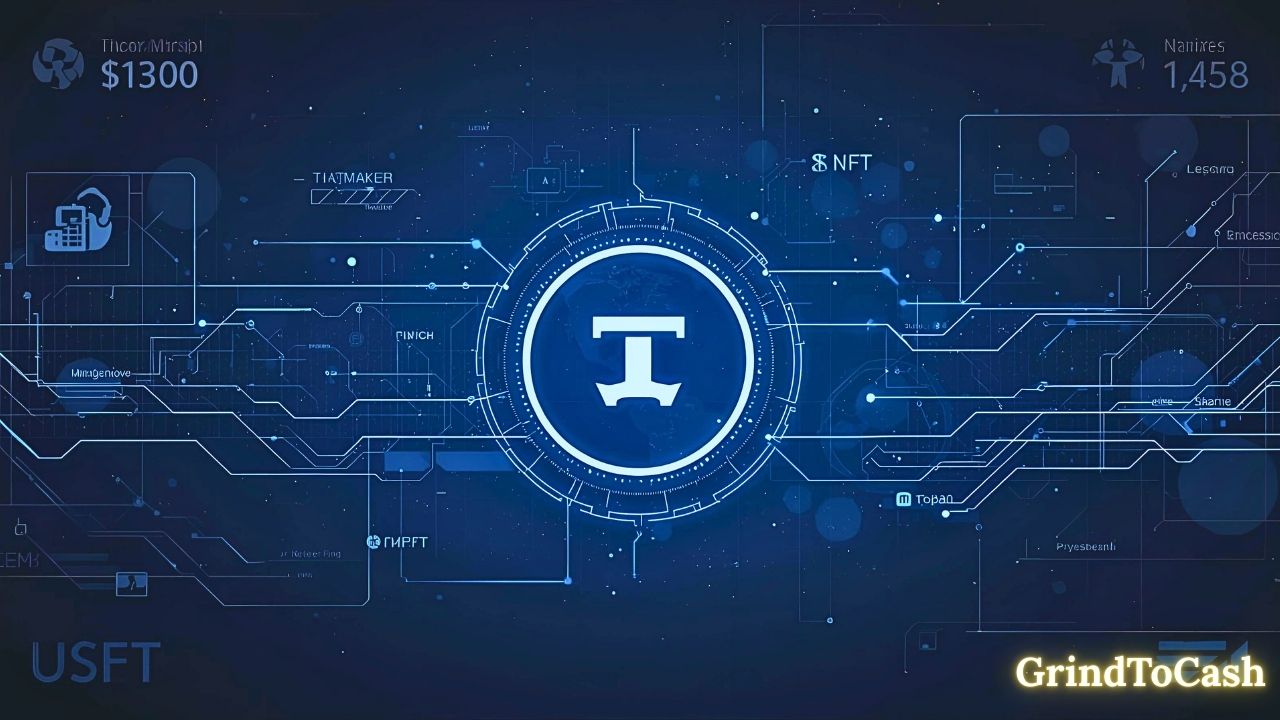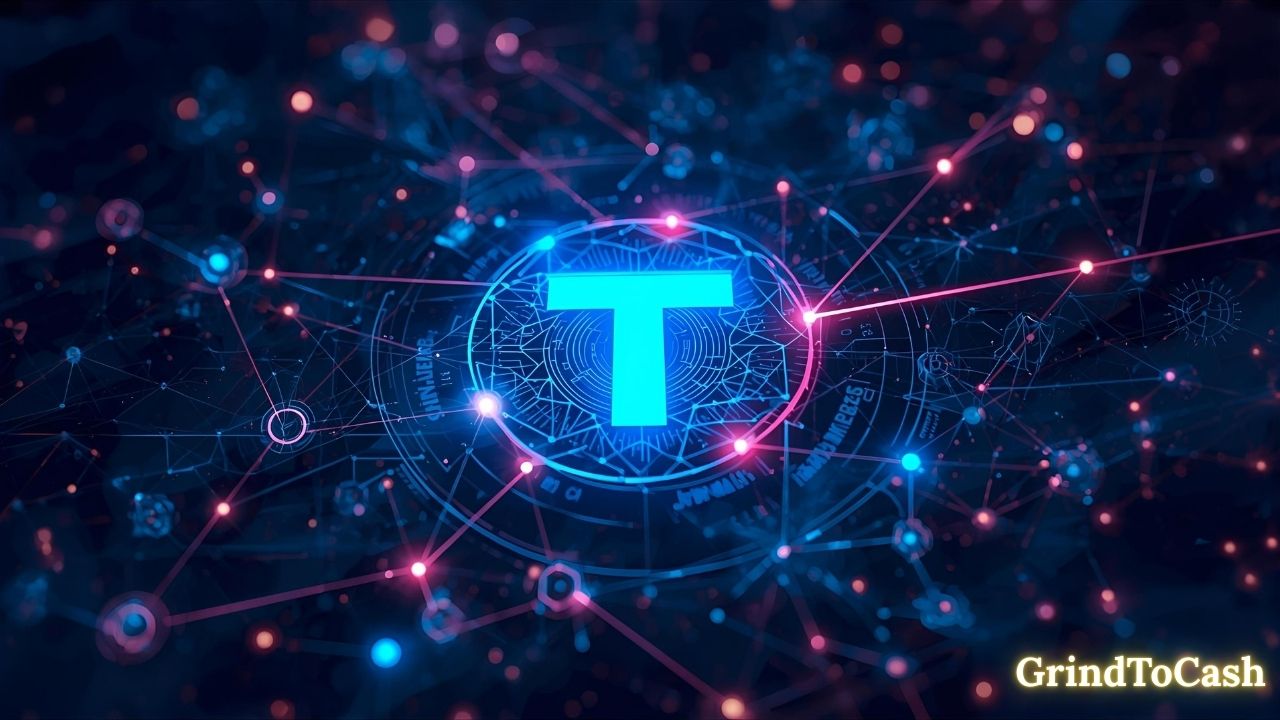Tether (USDT): Stability and Utility in the Crypto World
Discover Tether (USDT), the world’s leading stablecoin pegged to the US dollar. Learn its history, role in crypto, adoption, challenges, and future outlook.
By Yaser | Published on September 18, 2025

Origins of Tether (USDT) and Its Purpose
Tether (USDT) was first introduced in 2014 to address one of the biggest problems in cryptocurrency—volatility. Unlike Bitcoin or Ethereum, which fluctuate constantly, Tether is pegged to the U.S. dollar, maintaining a value of 1 USDT = 1 USD. This innovation allowed traders and investors to hold digital assets without worrying about sudden price drops. Over time, USDT became the foundation of global crypto trading, offering liquidity, accessibility, and a reliable store of value across exchanges and DeFi platforms.
Founders and Early Vision
Tether was founded by Brock Pierce, Reeve Collins, and Craig Sellars with the vision of bridging traditional finance and blockchain. Their goal was to make cryptocurrency stable, easy to use, and practical for everyday transactions. By combining blockchain transparency with the trust of fiat money, Tether’s founders created a token that quickly gained popularity.
The Concept of Stablecoins
Stablecoins are cryptocurrencies designed to minimize volatility by pegging their value to a stable asset like the U.S. dollar or gold. Tether pioneered this category, providing a digital dollar that could be transferred instantly across blockchains. This concept revolutionized crypto markets, as traders finally had a reliable currency for settlements.
Early Adoption and Growth
In its first years, Tether was primarily used on smaller exchanges, but by 2017 it had gained massive adoption as the go-to stablecoin for crypto traders. With growing demand for dollar-backed assets, USDT’s supply expanded quickly, marking the beginning of its dominance in the digital asset space.

How Tether Maintains Stability
The main strength of USDT lies in its peg to the U.S. dollar. Each Tether token is theoretically backed by reserves held by Tether Limited, ensuring that users can redeem tokens for real dollars. This mechanism offers traders confidence in using USDT as a stable unit of account. The company has faced criticism regarding transparency, but regular attestations and updates have reassured many investors of its credibility, making USDT the most trusted stablecoin today.
Dollar Peg Mechanism
Tether achieves its 1:1 peg with the dollar by maintaining reserves, including cash, short-term securities, and other assets. This system allows USDT to remain stable even during volatile market conditions. Traders rely on this peg to move funds quickly without losing value.
Transparency and Audits
Transparency has always been a topic of debate for Tether. The company provides attestations rather than full audits, which has raised concerns. However, these reports still confirm that sufficient reserves are held to back circulating tokens. This balance between trust and skepticism has shaped how USDT is perceived in the market.
Importance of Stability for Traders
Stability is what makes USDT indispensable. When markets crash, investors often convert volatile assets like Bitcoin into Tether to preserve value. This safe harbor function has made USDT a critical tool for both beginners and professional traders navigating the unpredictable crypto landscape.

USDT’s Role in Global Crypto Trading
USDT is now the backbone of crypto exchanges worldwide. Most trading pairs on platforms like Binance, Huobi, and OKX are denominated in Tether, making it the most liquid asset in crypto markets. Its dominance ensures that traders can easily buy and sell digital assets without needing direct access to dollars.
Liquidity Across Exchanges
One of the main reasons for USDT’s popularity is its high liquidity. Almost every major exchange supports it, which means users can move funds seamlessly. This universal acceptance has made Tether an essential part of crypto infrastructure.
A Bridge Between Fiat and Crypto
Tether acts as a bridge between traditional fiat currencies and blockchain-based assets. Instead of dealing with slow and costly bank transfers, traders use USDT for instant settlements across borders. This feature has significantly boosted crypto adoption worldwide.
Dominance in Trading Volume
Tether consistently ranks as the highest-traded cryptocurrency by volume, surpassing even Bitcoin. This dominance reflects its role as the preferred settlement currency in crypto markets, where billions of dollars are exchanged daily using USDT.

Tether and the Rise of DeFi
With the growth of decentralized finance, USDT became a key building block for lending, borrowing, and yield farming platforms. Its stability allowed developers to create complex financial products that could operate without traditional banks.
USDT in Lending Platforms
DeFi platforms like Aave and Compound rely heavily on stablecoins. USDT is often one of the most supplied and borrowed assets, providing users with interest opportunities while keeping their funds stable.
Yield Farming Opportunities
Farmers and liquidity providers use USDT to earn returns without taking on the same risks as volatile assets. Its predictability makes it a safe choice for those seeking steady profits in DeFi ecosystems.
Security and Smart Contracts
The use of Tether in DeFi also highlighted the importance of secure smart contracts. Since billions of dollars in USDT flow through decentralized protocols, the security of these contracts is essential to maintain user trust.

Tether in the NFT Market
NFT marketplaces often support USDT because it allows users to trade digital assets without worrying about fluctuating values. This stable pricing encourages more participation from artists, collectors, and investors.
Buying and Selling NFTs with USDT
Using Tether, buyers and sellers can transact smoothly with prices pegged to the dollar, making NFT markets more accessible to mainstream users.
Supporting Creators
By providing a stable currency, USDT helps creators receive predictable income from their work. This financial stability has encouraged more artists to enter the NFT space.
Cross-Market Accessibility
NFT platforms that operate globally benefit from USDT’s universal acceptance, allowing them to reach users worldwide without conversion hassles.

Controversies and Criticism
Despite its dominance, Tether has faced ongoing criticism. Questions about its reserves, regulatory pressure, and transparency issues continue to spark debates in the crypto community.
Reserve Backing Concerns
Critics have questioned whether Tether is fully backed by dollars. While Tether Limited claims sufficient reserves, the lack of a full independent audit has fueled skepticism.
Regulatory Challenges
Governments and regulators are increasingly scrutinizing stablecoins, with Tether often being the primary focus. This oversight could impact how USDT operates globally.
Market Trust and Resilience
Despite controversies, Tether has shown resilience. It continues to dominate markets, proving that traders still trust its stability and convenience over alternatives.

Competitors and Alternatives to USDT
While Tether is the largest stablecoin, other projects like USDC, BUSD, and DAI compete for market share. Each has its own strengths, but none have matched USDT’s liquidity and adoption.
USD Coin (USDC)
Backed by Circle and Coinbase, USDC is considered more transparent than Tether, but it has not surpassed USDT in global dominance.
Binance USD (BUSD)
Supported by Binance, BUSD is widely used but remains exchange-centric, limiting its reach compared to Tether.
Decentralized Alternatives like DAI
DAI offers a decentralized stablecoin model, but its complexity and reliance on overcollateralization prevent it from scaling like USDT.

Latest Developments in Tether
Tether continues to innovate by expanding to new blockchains and improving transparency. Recent updates include investment in renewable energy and stablecoin adoption across multiple ecosystems.
Expansion Across Blockchains
USDT now exists on Ethereum, Tron, Solana, and other networks, ensuring accessibility across ecosystems.
Focus on Sustainability
Tether has announced investments in renewable energy, aligning with global efforts to make crypto more eco-friendly.
Increasing Mainstream Adoption
From remittances to e-commerce, more industries are integrating Tether as a payment method, highlighting its growing influence beyond trading.

The Future of Tether (USDT)
Tether’s future depends on how it navigates regulatory challenges while continuing to serve as the backbone of crypto trading. If transparency and innovation improve, USDT will likely maintain its dominance for years to come.
Regulatory Outlook
Governments are still shaping their approach to stablecoins, and Tether’s response will determine its long-term survival and influence.
Integration with Traditional Finance
As banks and financial institutions explore digital assets, Tether could bridge the gap, becoming a vital part of global finance.
Long-Term Relevance
Given its liquidity and adoption, USDT is poised to remain the most important stablecoin. Its ability to adapt to challenges will decide whether it continues leading the market.
Conclusion
Tether (USDT) has cemented its place as the most important stablecoin in the cryptocurrency world. By providing stability, liquidity, and global adoption, it has become the backbone of crypto trading and DeFi ecosystems. At GrindToCash, we recognize the importance of understanding USDT’s role, challenges, and future potential. While controversies remain, Tether’s influence is undeniable, and its journey continues to shape the landscape of digital finance.









